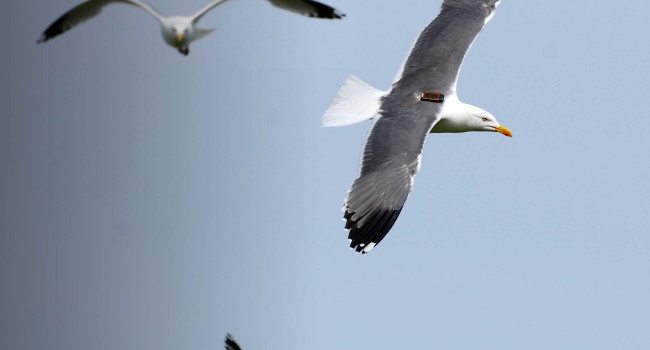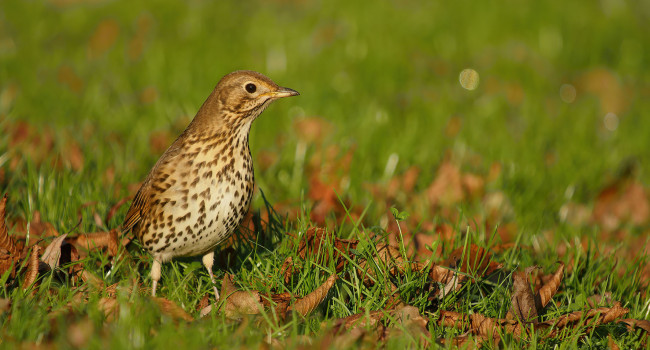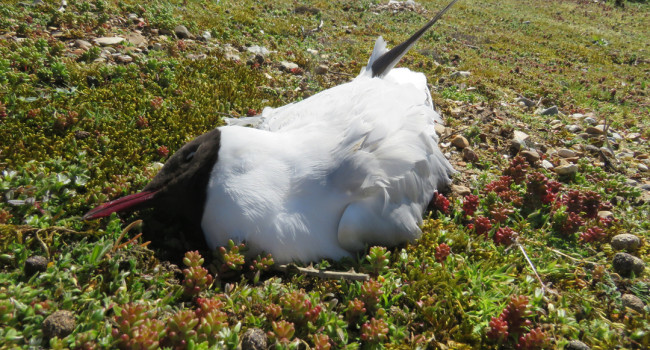A helping hand for garden birds
01 Feb 2011 | No. 2011-04
With the impact of predators on songbird populations featuring heavily in the news, the public are keen to know what they can do to help. Many predators can be found in gardens, and the British Trust for Ornithology (BTO) has produced free guides to advise armchair birdwatchers.
numbers stirs up heated debate
There is concern, for example, that smaller birds that gather at feeding stations are an easy target for predators like Sparrowhawks – but steps can be taken to help tip the balance. The BTO Garden BirdWatch team recommends positioning hanging feeders close to tall and dense vegetation, enabling smaller species to grab food and, if necessary, flit quickly into cover. Moving feeders regularly is also a top tip, since Sparrowhawks tend to follow regular flight paths through gardens.
Cats are thought to take some 55 million birds in British gardens every year, including red-listed species such as House Sparrow and Starling. Various cat deterrents can help to reduce this toll, with sonic devices being particularly effective if moved regularly to prevent cats from learning how to avoid their sensors. This and many other great hints are available from the BTO’s Garden BirdWatch team.
Dr Tim Harrison, BTO Garden BirdWatch, commented: “Those who have a predator visit their garden face many tricky questions. Should I keep feeding birds if I see a Sparrowhawk? How can I reduce the number of birds that are taken by my cat? These and other questions are addressed in the free guides produced by the BTO Garden BirdWatch team.”
He concluded: “With Sparrowhawk numbers having recovered in recent decades and some nine million cats – around one for every seven persons – in the UK, there is understandable concern about the impact of predators on songbird numbers. The public need impartial, scientific advice, and this is where we can help.”
To get the free guides please email gbw [at] bto.org, telephone 01842 750050 and ask for the Garden BirdWatch team, or write to Garden BirdWatch, BTO, The Nunnery, Thetford, Norfolk, IP24 2PU.
Notes for editors
-
Get these free guides: email gbw [at] bto.org, telephone 01842 750050 and ask for the Garden BirdWatch team, or write to Garden BirdWatch, BTO, The Nunnery, Thetford, Norfolk, IP24 2PU.
-
The BTO is the UK’s leading bird research organisation. Over thirty thousand birdwatchers contribute to the BTO’s surveys. They collect information that forms the basis of conservation action in the UK. The BTO maintains a staff of 100 at its offices in Norfolk and Stirling, who analyse and publicise the results of project work. The BTO’s investigations are funded by government, industry and conservation organisations.
-
The BTO Garden BirdWatch is the only nationwide survey of garden birds to run weekly throughout the year, providing important information on how birds use gardens, and how this use changes over time. Currently, some 15,000 people take part in the project. The project is funded by participants’ contributions and is the largest year-round survey of garden birds in the world. For more information see www.bto.org/gbw
Contact information
Tim Harrison (BTO Garden BirdWatch Development Officer)
Office: 01842 750050
Email: tim.harrison [at] bto.org
Paul Stancliffe (BTO Press Officer)
Office: 01842 750050 (9am to 5.30pm)
Mobile: 07585 440910 (anytime)
Email: press [at] bto.org
Images are available for use alongside this News Release
Please contact images [at] bto.org quoting reference 2011-04
The BTO has an ISDN line available for radio interviews
Please contact us to book an interview
Office: 01842 750050







Share this page